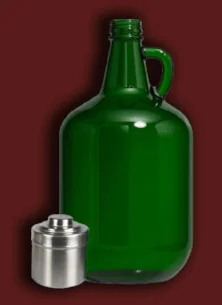Has this ever happened to you? You spend a day that you had planned for a month in advance ... the weather is perfect, and the place is spectacular. At the end of the day, as the light starts to fade, you know you have taken what you think will turn out to be remarkable, stunning photographs and all shot with your best camera with your best lens. You get home or, better, to your studio. And then something absolutely catastrophic happens. The pictures are gone. Gone. No files. Nada. Something has crashed and crashed drastically. Maybe the SD card cannot be read, or you erased all the images by mistake. Or worse, you get them into your computer and you see how great they really are and then the computer crashes and you haven't backed any of them up.
That kind of thing ever happened to you?
Well, it's happened to me and more than once and in two separate worlds.
Back in the darkroom days, when we didn't know we were living in an analog world, and nobody knew about computer crashes because nobody had a computer, in those darkroom days there was no quick way to erase what you've taken. Oh no, you had to work at it. You had to really mess up. Those images were recorded on a thing you could touch. In the digital world you can do everything right and still lose your data. Some glitch, a crash. Or no electricity. In the analog world, you don't need electricity because pictures are made of stuff. Stuff like film and paper. Stuff you can touch.
You can say Oh well if it's your work you lose, but if it's a job, then the two worlds have this in common:
You should never leave things to the last minute.
It's one of the universal laws: If you leave things to the last minute everything that can go wrong will go wrong. Sometimes very wrong.
Before digital photography, there was Tri-X 120.
I had taken some black and white publicity pictures with Kodak Tri-X film, and they had to be delivered the next morning. I was busy all day, and I put off developing the Tri-X negatives and printing pictures until way late in the evening.
The time had finally come; I couldn't put it off any longer. I went to my basement darkroom and, in the dark, I loaded the 120 film into the light-tight developing tank. I went back up to the kitchen and picked up the green glass gallon bottle of D-76 Kodak Developer. On my way to the sink, in my haste I knocked the bottle against the corner of a metal table. The bottle shattered, and the developer went all over the floor. A smelly, wet liquid mess spread quickly across the linoleum and started seeping under the refrigerator. If there were any late-night mice around, they were scattering.
What could I do? This is a paying job. I had all of these negatives to develop by tomorrow and no stores with powdered D-76 were open at 2AM and certainly there was not a dream of Amazon Now.
I had only one possible, long-shot of a choice: mop up the developer and use it.
So I got out the mop, cleaned it, and started mopping. After five minutes, I had the mop had absorbed nearly three-quarters of a gallon of D-76 (more like D-76+) and squeezed it into a kitchen pot. It looked just like the dirty water you get after you mop a kitchen floor. Stands to reason.
I then filtered the developer into a plastic bottle using a funnel and a paper towel.
The stuff was still plenty dirty, but I poured it into the developing tank and started to time the process and agitate the tank (one minute intervals of swishing the solution). I added about a minute to the developing time just to be on the safe side. Whatever it was, it did the trick; the negatives developed normally and the pictures were delivered the time.
A crash is a crash, analog or digital. Some you can't recover from, some you can. The only difference is onomatopoetic; an analog crash, like the breaking of a green glass bottle, can be heard. In the digital realm, the crash is silent.
So, have you had any crashes... digital, analog, or otherwise?
